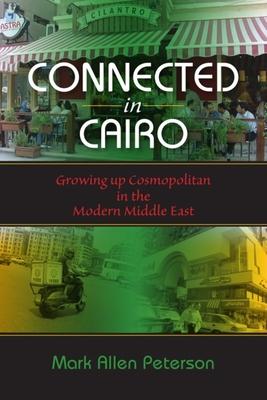For members of Cairo's upper classes, cosmopolitanism is a form of social capital, deployed whenever they acquire or consume transnational commodities, or goods that are linked in the popular imagination to other, more "modern" places. In a series of thickly described and carefully contextualized case studies--of Arabic children's magazines, Pokmon, private schools and popular films, coffee shops and fast-food restaurants--Mark Allen Peterson describes the social practices that create class identities. He traces these processes from childhood into adulthood, examining how taste and style intersect with a changing educational system and economic liberalization. Peterson reveals how uneasy many cosmopolitan Cairenes are with their new global identities, and describes their efforts to root themselves in the local through religious, nationalist, or linguistic practices.

Connected in Cairo: Growing up Cosmopolitan in the Modern Middle East
For members of Cairo's upper classes, cosmopolitanism is a form of social capital, deployed whenever they acquire or consume transnational commodities, or goods that are linked in the popular imagination to other, more "modern" places. In a series of thickly described and carefully contextualized case studies--of Arabic children's magazines, Pokmon, private schools and popular films, coffee shops and fast-food restaurants--Mark Allen Peterson describes the social practices that create class identities. He traces these processes from childhood into adulthood, examining how taste and style intersect with a changing educational system and economic liberalization. Peterson reveals how uneasy many cosmopolitan Cairenes are with their new global identities, and describes their efforts to root themselves in the local through religious, nationalist, or linguistic practices.